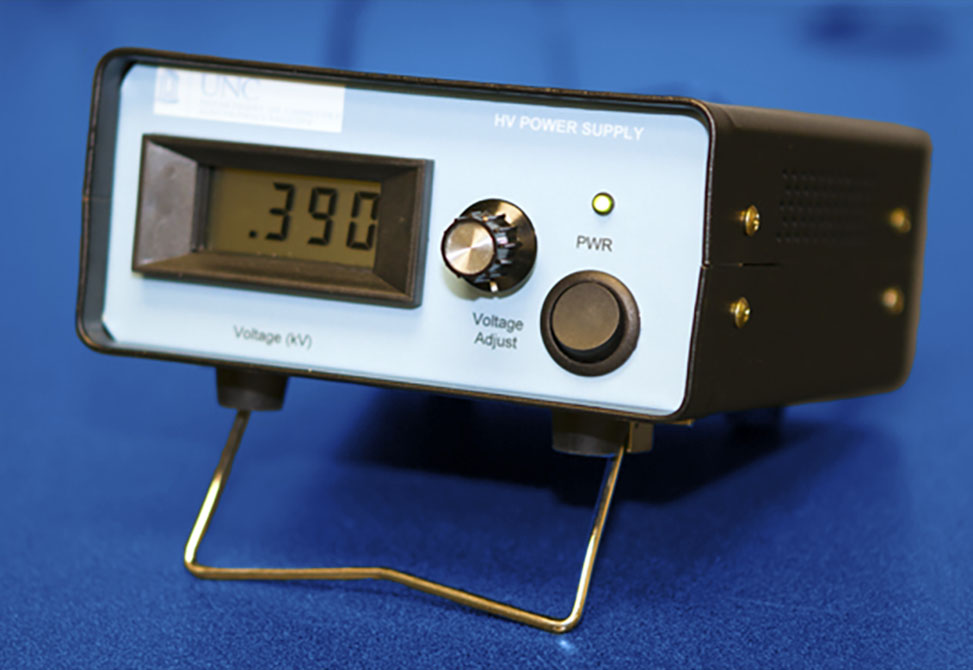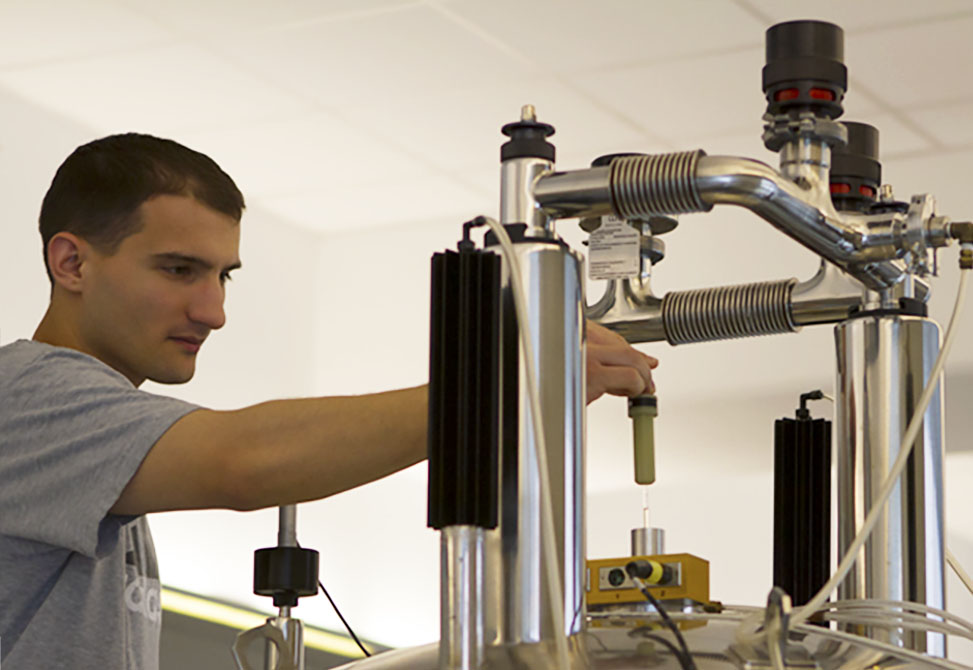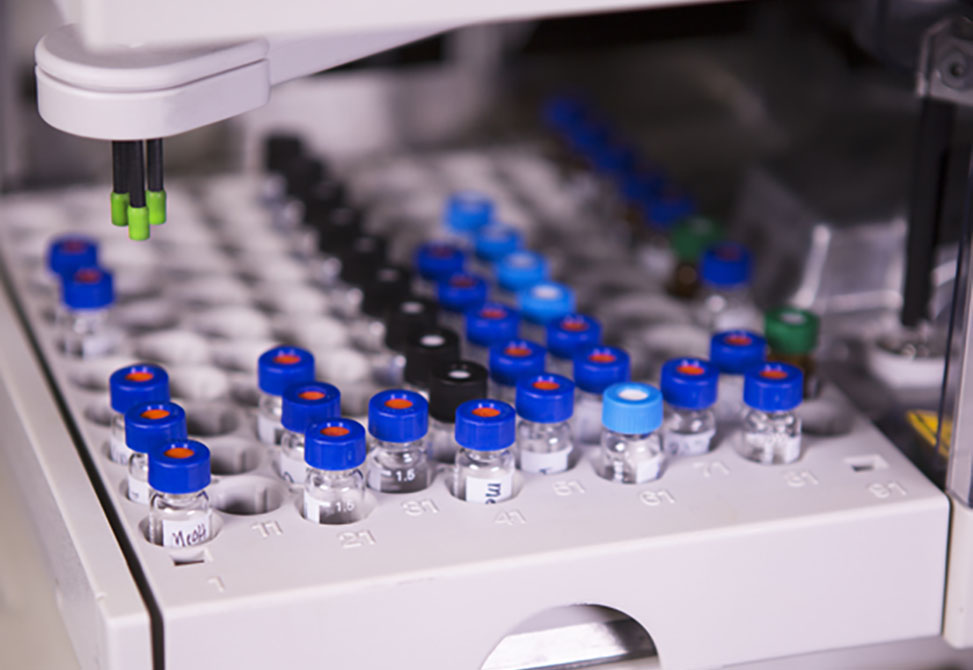Chemical Research Instrumentation Teaching and Core Labs
The Chemical Research Instrumentation Teaching and Core Laboratories, CRITICL, are here to support UNC research at all levels, from acquiring preliminary data for grant applications to training faculty, postdocs, graduate students and undergraduates in the acquisition and analysis of data from state-of-the-art instrumentation.
Each of our three instrument cores, NMR, Mass Spectrometry and Small Molecule X-ray Diffraction, is led by a highly-qualified, PhD level-level scientist who not only knows how to obtain the highest quality data, but is also adept at training users.
In addition, the department supports the only Electronics Core in Arts and Sciences. The director is a bona fide engineer with a track record of innovative design work including low noise, high-bandwidth electronics for nanodevices, RF systems for miniaturized mass spectrometry, advanced signal processing algorithms for spectroscopic data and 3D FFT algorithms for cyclic voltammetry. Our glass shop is headed up by a scientific glass blower with over 30 years of experience. The following pages provide more detail, including
Electronics Core Laboratory
The Electronics Facility provides design and repair services on the UNC campus. Capabilities include analog, digital, and RF design as well as signal processing and software development. In addition, the facility provides circuit simulation, mathematical modeling, and mechanical design in support of prototype production and construction of circuits and instrumentation.

We provide both formal and informal training in electronics and signal processing topics, as well as assist with writing grant proposals and scientific papers. The facility is comprised of two engineers and two technicians with expertise in a wide variety of analytical instrumentation.
NMR Core Laboratory
Support for Nuclear Magnetic Resonance Spectroscopy is provided by the Department of Chemistry’s NMR Facility for a variety of applications in solution state, solid state and semi-solid samples. Although many NMR active nuclei can be observed, we have extensive capabilities, including highly sensitive cryoprobes, for the detection of 1H, 2H, 13C, 15N, 19F and 31P. Gradient enhanced pulse sequences, and variable sample temperature control is available for 1D and multidimensional experiments. Training and access to the facility is encouraged for the entire UNC-CH campus, other universities and colleges and local industry.

Our six spectrometers include two 400 MHz Bruker spectrometers for standard 1D and 2D NMR, a 360 MHz Bruker spectrometer for solids and other unique samples, a Bruker 500 MHz system for advanced applications in multinuclear and reaction kinetics at extreme temperature (+/- 120 C), a Varian/Agilent 600MHz spectrometer mostly used for 1H detection and a Bruker 600 MHz spectrometer equipped with a 60 position sample changer and two cryoprobes.
Mass Spectrometry Core Laboratory
The Mass Spectrometry Core Laboratory at Carolina Chemistry is involved in the characterization and quantification of various types of materials, for example small organic and inorganic molecules, lipids, metabolites, synthetic polymers, nanoparticles, and trace level elemental analysis. Users from the Department of Chemistry and other departments on UNC-Chapel Hill campus can have full access to the laboratory once trained. Researchers from other universities, institutes, and commercial laboratories can submit samples for full service analysis. External user training may be available, as well. Please inquire.

Currently the lab operates five mass spectrometry platforms for both sample submission analysis and self-service operation. These mass spectrometry systems include our Q Exactive HF-X with optional Waters Acquity H-class liquid chromatograph system, an Element XR for high resolution ICP-MS analysis with optional laser ablation source, a FinniganLTQ ion trap mass spectrometer with an Agilent 1100 liquid chromatography system, a PE Sciex 3000 triple quad mass spectrometer with Shimadzu LC-MS and CTC autosampler, and a GC Exactive for gas chromatography analyses.

